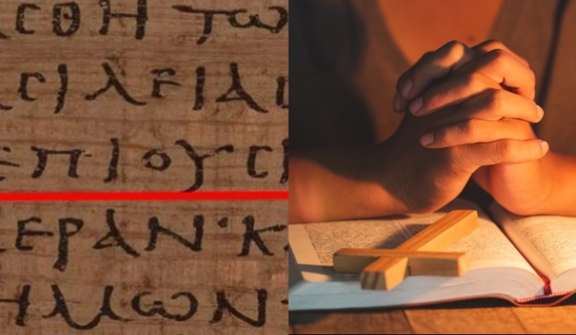
It is one of the first prayers you learn in the Christian church, believed to have been originally taught by Jesus Christ himself.
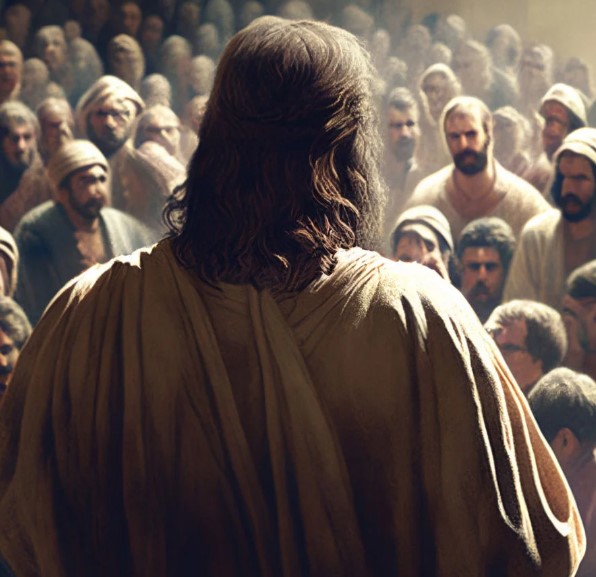
Lord's Prayer is an ancient text in modern times, when this prayer is deeply ingrained in Christian tradition. Yet, its origins lie in ancient Greek and Latin, not modern English.
Most translations indeed contain errors. You didn't hear wrong.
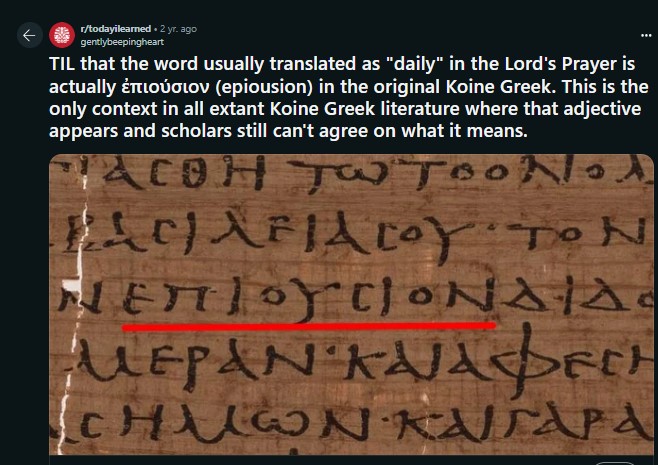
The debate began when one user pointed out potential mistranslations in holy books worldwide.
If you thought the more common phrases, passages, and prayers in the Lord's Prayer were truly exact, think again. However, it's understandable if you lack knowledge of cultural or ancient languages like Greek and Latin. Don't worry, a user on Reddit can help you with that."
In the post that went viral on the Reddit platform, one user left viewers stunned after pointing out that one word of the Lord's Prayer has been mistranslated for centuries.
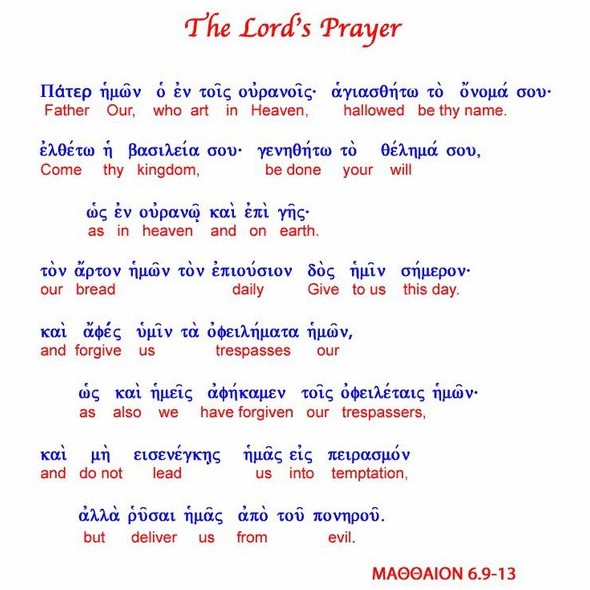
In recent discussions, a Redditor highlighted a significant discrepancy in translation. The term 'epiousion,' found in the original Greek text, presents a challenge for translators.
The post read: TIL that the word usually translated as "daily" in the Lord's Prayer is actually ἐπιούσιον (epiousion) in the original Koine Greek. This is the only context in all extant Koine Greek literature where that adjective appears and scholars still can't agree on what it means.

The crux of the issue lies in the translation of 'epiousion.' While the English version typically reads 'Give us today our daily bread,' the original Greek suggests something more enigmatic.
Rather than a straightforward 'daily,' 'epiousion' carries connotations of 'supersubstantial,' hinting at a deeper, more spiritual meaning.
This revelation has sparked a flurry of interpretations and debates among scholars and believers alike.
In the comment selection, many shared their opinion on the true meaning of ''epiousion.'

Many suggested that 'spiritual bread' be a more fitting translation, while others argued that 'daily' remains a valid interpretation, encompassing both the material and spiritual realms.
One person said: Christians commonly think it's the word of God, but they dont realize the Bible is a hodgepodge of Aramaic, Greek, and Hebrew translations and mistranslations
A second wrote: We Greeks understand the meaning of ἐπιούσιον (epiousion) as "necessary". In other words, you ask for the necessary, daily bread, no luxuaries!
While a third commented: epiousion means "that which is beyond the world" or "super-substantial" (supersubstantialis). In the aramic text it means "The future thing" or "the existence after".
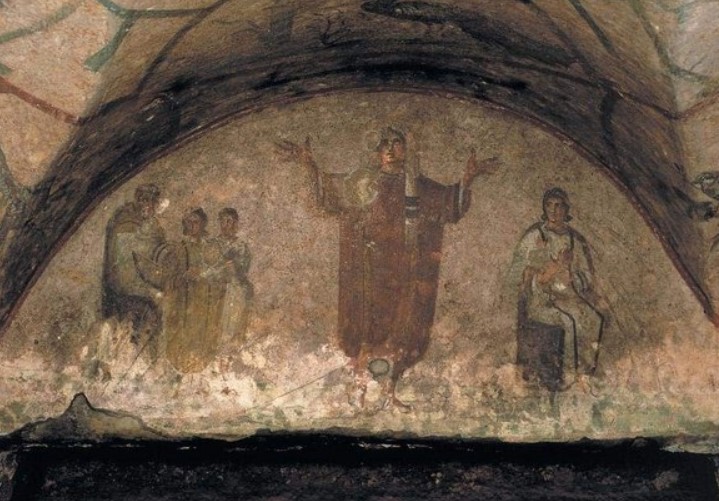
Man can not live by bread alone. He needs the spiritual food which is the teachings of Christ. "Daily" was an intentional mistranslation by the church. The church is an anti-Christian idea, it just wanted power and money.
Another added: If it were “supernatural”, then “bread” would be a play on words.
Not physical bread for our physical needs, but spiritual bread for our spiritual needs. Which makes sense why we ask for God to give it to us. And it also lines up with his words from the Last Supper.
It could be easily explained. In the realm of theology and religious studies, the potential for mistranslations in ancient texts is a well-known phenomenon.

Over millennia, as languages evolve and cultures change, nuances in meaning can be lost in translation.
While debates may continue, the revelation of 'epiousion' offers a glimpse into the complexities of ancient texts and the enduring quest for spiritual truth.




